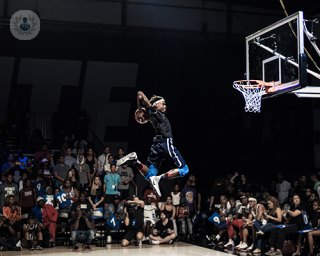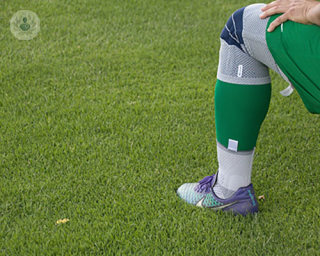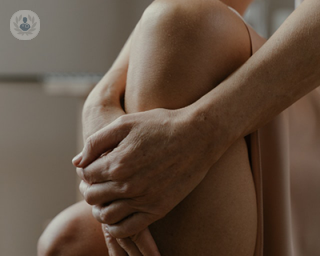Patellar tendonitis (jumper's knee)
Mr Majeed Shakokani - Orthopaedic surgery
Created on: 11-13-2012
Updated on: 08-03-2023
Edited by: Conor Lynch
What is patellar tendonitis?
The patellar tendon, which connects the kneecap to the tibia, works with the muscles in the front of the thigh to extend the knee and allow running, jumping, walking, etc. Patellar tendonitis (also known as jumper's knee) is when this tendon is injured or overloaded.
This condition is more common in athletes whose sport involves frequent jumping, such as basketball and volleyball. However, non-athletes can also develop patellar tendonitis. An orthopaedic surgeon would treat cases of patellar tendonitis.

What is the outlook?
Patellar tendonitis is not usually a serious injury, but it must be treated correctly so that it does not lead to anything else or long-term problems.
What are the symptoms of patellar tendonitis?
The main symptom of patellar tendonitis is pain, which may occur during physical activity or after intense training. The pain may worsen to the point of making it difficult to practice sports, or may make daily movements (such as climbing stairs) difficult. There may also be stiffness in the knee, pain when bending, or weakness in the leg.
How is patellar tendonitis diagnosed?
The following tests are usually used to diagnose patellar tendonitis:
- MRI scan
- Ultrasound
- X-ray
What causes patellar tendonitis?
Patellar tendonitis is usually caused by repeated stress on the patellar tendon. This causes tears in it that increase over time, causing pain, inflammation and weakening of the tendon.
Can patellar tendonitis be prevented?
Different steps can be taken to try to prevent patellar tendonitis, such as:
- strengthen muscles with exercise
- improve your technique when playing sports
- not exercising when suffering from pain
How is patellar tendonitis diagnosed?
Treatment usually begins with physical therapy to stretch and strengthen the muscles around the knee. A strap may also be applied to the patellar tendon that puts pressure on it and helps to distribute strength,







